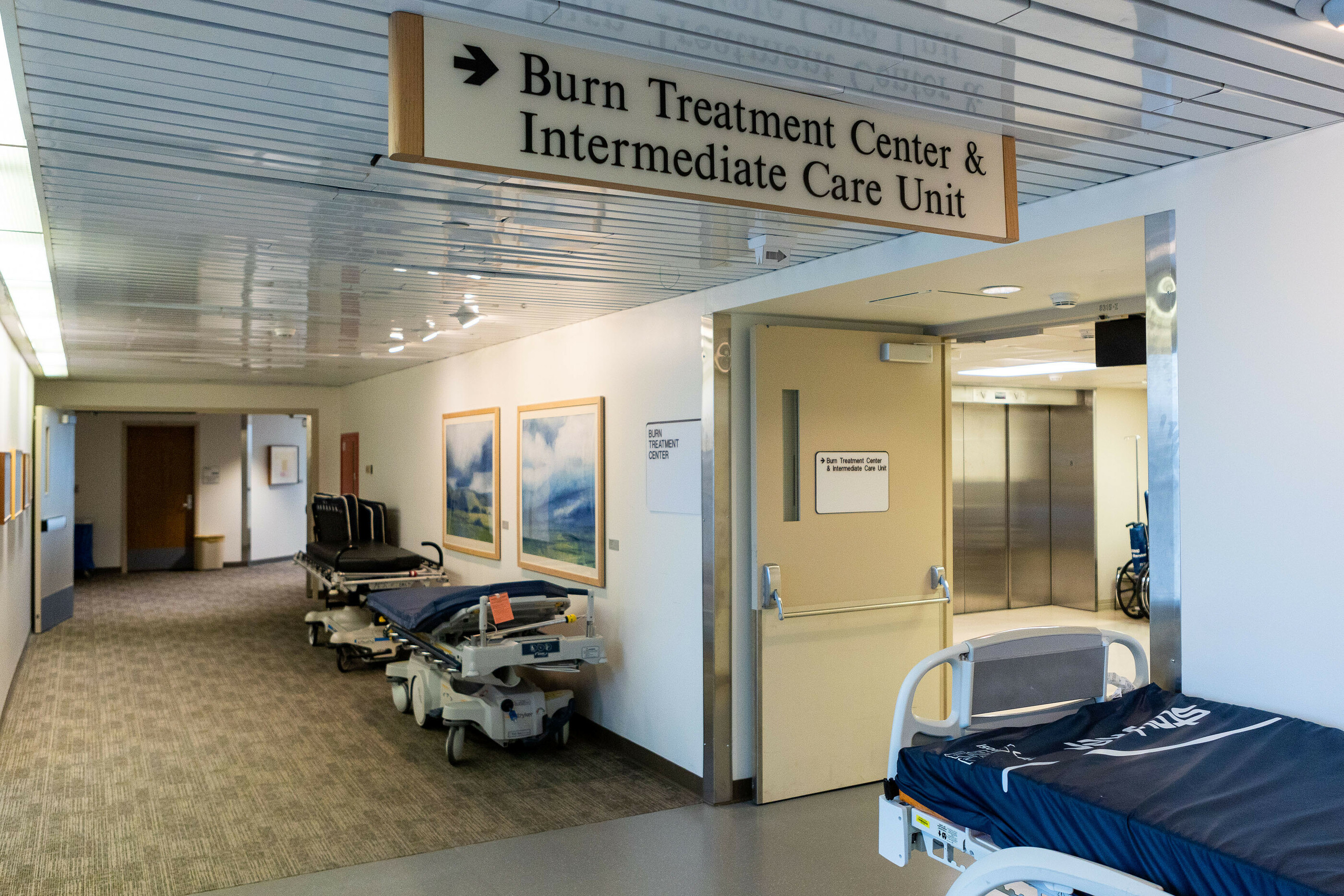Main navigation
Start Your Fellowship Here
Program Goal: To provide the fellow with an in-depth experience in the management of the entire spectrum of burn and complex wound care in the setting of a large university teaching hospital.
Fellowship Structure
The fellow will have clinical duties exclusively caring for patients on the Burn Surgery Service or patients on the Plastic Surgery Service for whom the burn fellow has provided surgical intervention. Under the supervision of the faculty member(s), the fellow will be responsible for guiding the junior residents in all aspects of burn care.
Burn care lectures to the residents, medical students, and other staff members are encouraged. Many of our past fellows have combined the one-year burn fellowship with an additional one-year surgical critical care fellowship.
Volume of Surgery
The Burn Service performs approximately 375 operations each year at University of Iowa Health Care. The staff assists on all operations. Each fellow can expect to perform over 200 major procedures during their fellowship. Although the preponderance of surgical cases involves acute burn surgery, complex wound care and burn reconstruction procedures are also part of the surgical cases. Procedures such as escharotomies, bronchoscopies, and conscious sedation are all performed in the Burn Treatment Center on a regular basis.
Organization of the Burn Surgery Service
The Burn Surgery Service at the University of Iowa Health Care consists of three faculty members, one burn fellow, one second year resident and one intern. The call coverage is from home and is primarily back up.
The fellow will round daily with the resident team providing close supervision, and will round with the charge nurse and rehab when available. Weekend rounds will be limited to weekends when the R1 is rounding. Nighttime/weekend call responsibilities include backing up the R1 when they are on call.
The Physician Assistant on the service ultimately works directly with the faculty; however, their input should be included in patient care. The residents and fellow have no supervisory role over the Physician Assistant.
Resident Educational Program and Teaching Conferences
Multidisciplinary educational lectures are held weekly, providing instruction on burn resuscitation, inhalation injuries, electrical and chemical burns, necrotizing acute soft tissue infections, and wound care.
Morbidity and Mortality conference is held weekly within the Department of Surgery. The Division of Acute Care Surgery holds a monthly Morbidity and Mortality conference where Burn Surgery Service cases are discussed.
Journal Club is presented once a month as is the Research Conference.
The burn surgery fellow is allowed one national meeting per year that is financially supported by the Burn Treatment Center. Additional meeting time if the fellow is making a scientific presentation is negotiable.
Clinical Facilities
The fellow will round daily with the resident team providing close supervision, and will round with the charge nurse and rehab when available. Weekend rounds will be limited to weekends when the R1 is rounding. Nighttime or weekend call responsibilities include backing up the R1 when they are on call. We strictly adhere to RRC guidelines regarding work schedules and duty hours.
The Physician Assistant and Nurse Practitioners on the service ultimately work directly with the faculty members; however, their input should be included in patient care. The residents and fellow have no supervisory role over the Physician Assistant or Nurse Practitioners.

Research Facilities
The fellow is encouraged to participate in research projects throughout the year by participating on projects currently underway or by creating new projects. The faculty on the Burn Surgery Service are continually conducting clinical research. In addition, there are animal research laboratories available with University of Iowa Health Care.